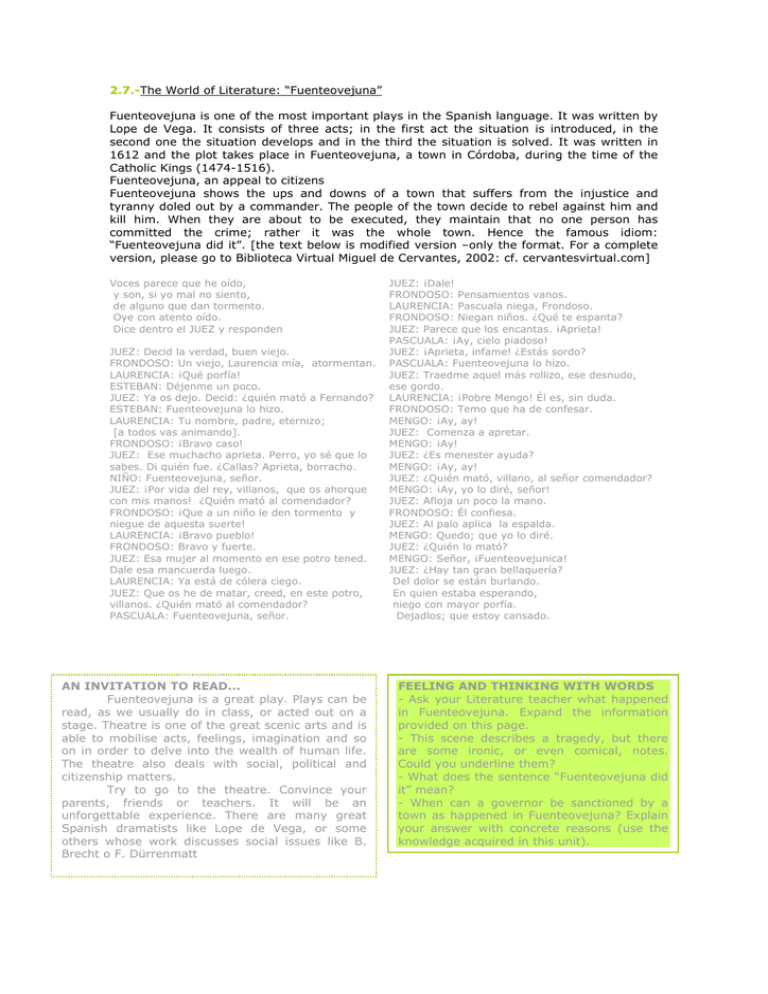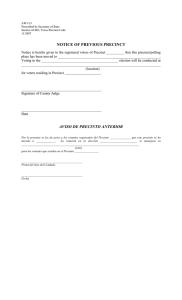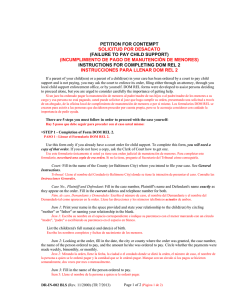UNIT 2: Citizenship in society
Anuncio

2.7.-The World of Literature: “Fuenteovejuna” Fuenteovejuna is one of the most important plays in the Spanish language. It was written by Lope de Vega. It consists of three acts; in the first act the situation is introduced, in the second one the situation develops and in the third the situation is solved. It was written in 1612 and the plot takes place in Fuenteovejuna, a town in Córdoba, during the time of the Catholic Kings (1474-1516). Fuenteovejuna, an appeal to citizens Fuenteovejuna shows the ups and downs of a town that suffers from the injustice and tyranny doled out by a commander. The people of the town decide to rebel against him and kill him. When they are about to be executed, they maintain that no one person has committed the crime; rather it was the whole town. Hence the famous idiom: “Fuenteovejuna did it”. [the text below is modified version –only the format. For a complete version, please go to Biblioteca Virtual Miguel de Cervantes, 2002: cf. cervantesvirtual.com] Voces parece que he oído, y son, si yo mal no siento, de alguno que dan tormento. Oye con atento oído. Dice dentro el JUEZ y responden JUEZ: Decid la verdad, buen viejo. FRONDOSO: Un viejo, Laurencia mía, atormentan. LAURENCIA: ¡Qué porfía! ESTEBAN: Déjenme un poco. JUEZ: Ya os dejo. Decid: ¿quién mató a Fernando? ESTEBAN: Fuenteovejuna lo hizo. LAURENCIA: Tu nombre, padre, eternizo; [a todos vas animando]. FRONDOSO: ¡Bravo caso! JUEZ: Ese muchacho aprieta. Perro, yo sé que lo sabes. Di quién fue. ¿Callas? Aprieta, borracho. NIÑO: Fuenteovejuna, señor. JUEZ: ¡Por vida del rey, villanos, que os ahorque con mis manos! ¿Quién mató al comendador? FRONDOSO: ¡Que a un niño le den tormento y niegue de aquesta suerte! LAURENCIA: ¡Bravo pueblo! FRONDOSO: Bravo y fuerte. JUEZ: Esa mujer al momento en ese potro tened. Dale esa mancuerda luego. LAURENCIA: Ya está de cólera ciego. JUEZ: Que os he de matar, creed, en este potro, villanos. ¿Quién mató al comendador? PASCUALA: Fuenteovejuna, señor. AN INVITATION TO READ... Fuenteovejuna is a great play. Plays can be read, as we usually do in class, or acted out on a stage. Theatre is one of the great scenic arts and is able to mobilise acts, feelings, imagination and so on in order to delve into the wealth of human life. The theatre also deals with social, political and citizenship matters. Try to go to the theatre. Convince your parents, friends or teachers. It will be an unforgettable experience. There are many great Spanish dramatists like Lope de Vega, or some others whose work discusses social issues like B. Brecht o F. Dürrenmatt JUEZ: ¡Dale! FRONDOSO: Pensamientos vanos. LAURENCIA: Pascuala niega, Frondoso. FRONDOSO: Niegan niños. ¿Qué te espanta? JUEZ: Parece que los encantas. ¡Aprieta! PASCUALA: ¡Ay, cielo piadoso! JUEZ: ¡Aprieta, infame! ¿Estás sordo? PASCUALA: Fuenteovejuna lo hizo. JUEZ: Traedme aquel más rollizo, ese desnudo, ese gordo. LAURENCIA: ¡Pobre Mengo! Él es, sin duda. FRONDOSO: Temo que ha de confesar. MENGO: ¡Ay, ay! JUEZ: Comenza a apretar. MENGO: ¡Ay! JUEZ: ¿Es menester ayuda? MENGO: ¡Ay, ay! JUEZ: ¿Quién mató, villano, al señor comendador? MENGO: ¡Ay, yo lo diré, señor! JUEZ: Afloja un poco la mano. FRONDOSO: Él confiesa. JUEZ: Al palo aplica la espalda. MENGO: Quedo; que yo lo diré. JUEZ: ¿Quién lo mató? MENGO: Señor, ¡Fuenteovejunica! JUEZ: ¿Hay tan gran bellaquería? Del dolor se están burlando. En quien estaba esperando, niego con mayor porfía. Dejadlos; que estoy cansado. FEELING AND THINKING WITH WORDS - Ask your Literature teacher what happened in Fuenteovejuna. Expand the information provided on this page. - This scene describes a tragedy, but there are some ironic, or even comical, notes. Could you underline them? - What does the sentence “Fuenteovejuna did it” mean? - When can a governor be sanctioned by a town as happened in Fuenteovejuna? Explain your answer with concrete reasons (use the knowledge acquired in this unit).



